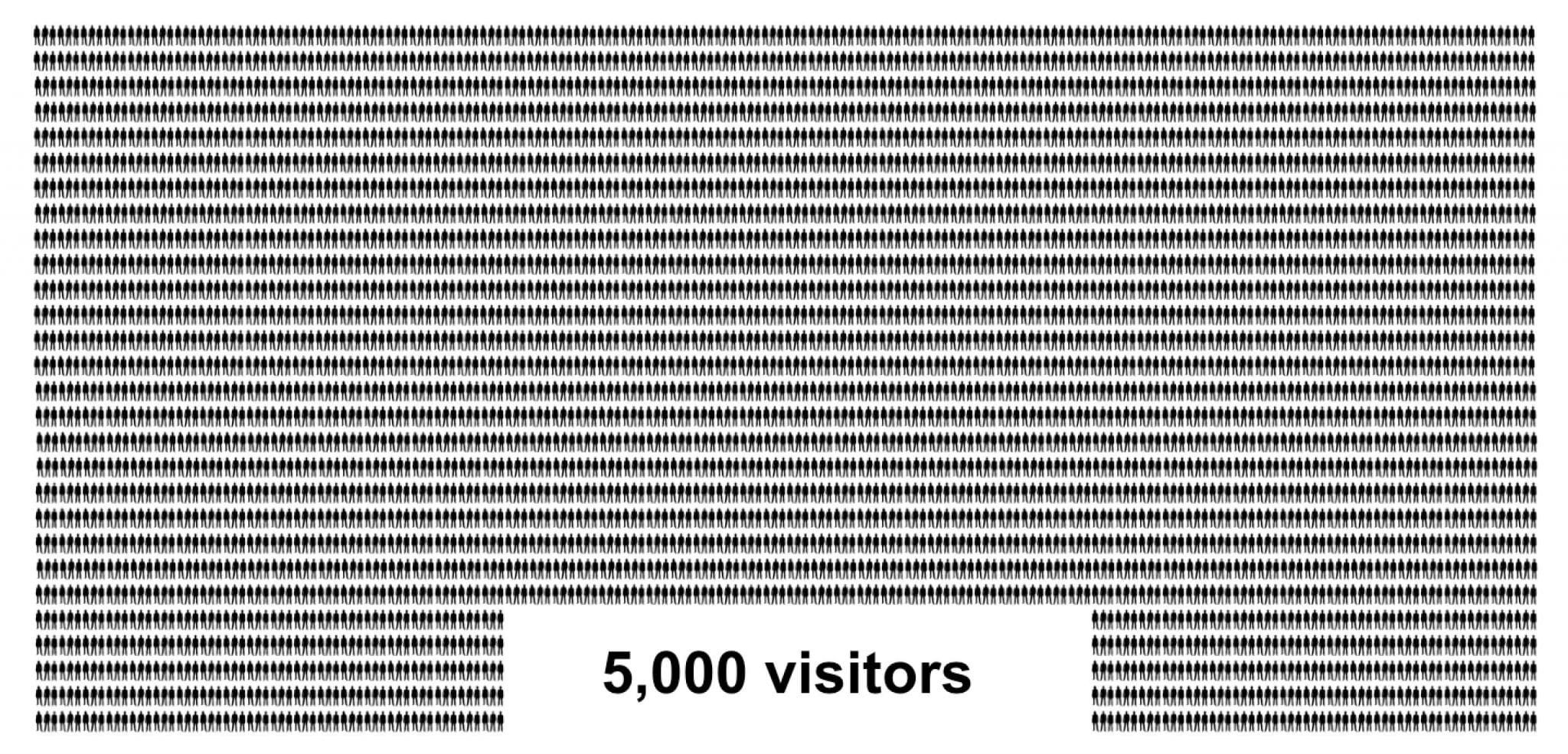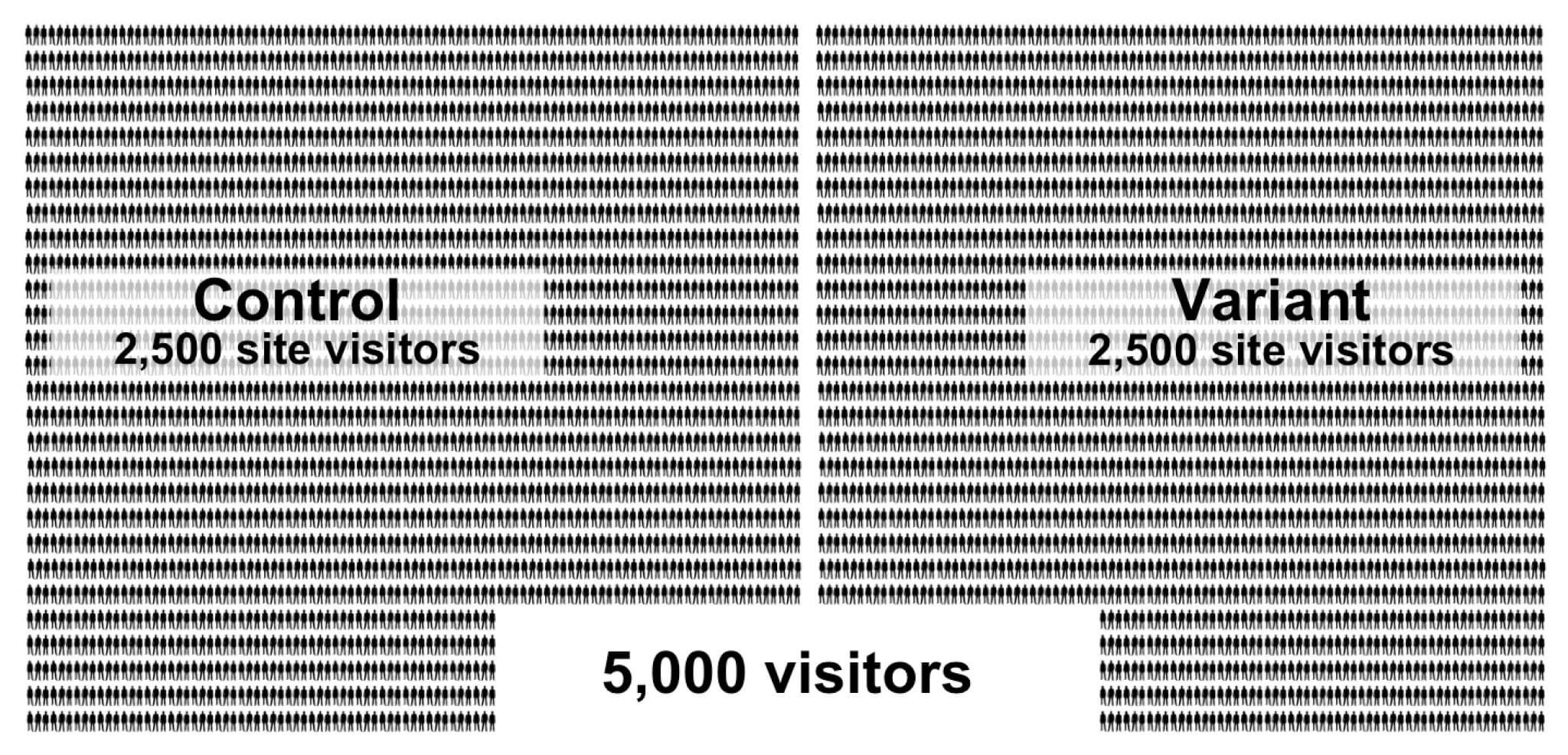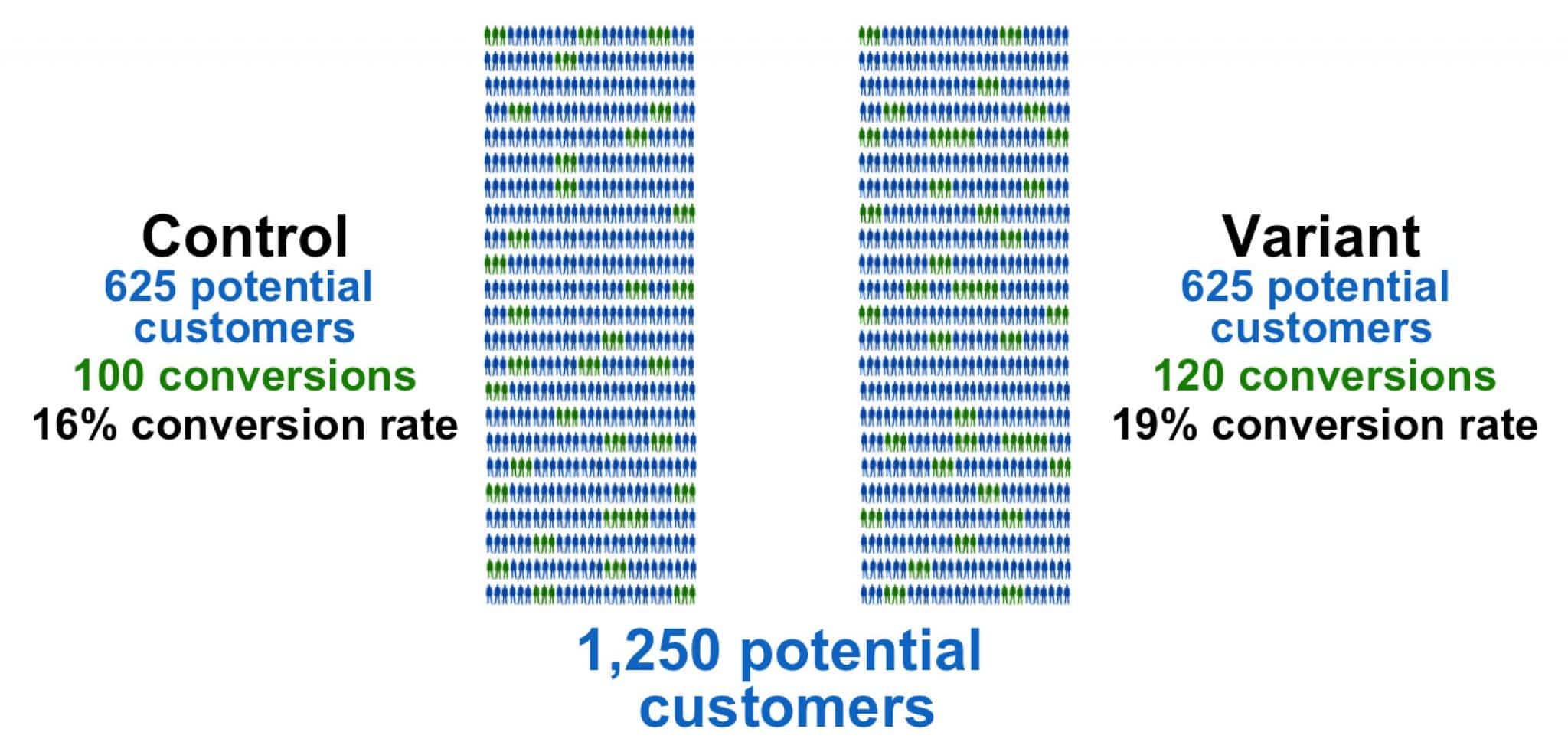PPC vs CRO: Where Should You Spend Your Time?
by Aden Andrus • June 9, 2016
As online advertising has become increasingly competitive, advertisers have become increasingly interested in optimization.
It makes sense, the more optimized your advertising campaigns are, the more value you can get out of your advertising budget.
As a result, A/B testing and conversion rate optimization (CRO)—the science of getting more conversions ut of your existing traffic—have become incredibly hot topics for digital marketers.
Now, don’t get me wrong. Pay-per-click (PPC) advertising is still considered one of the best traffic sources around, but competition and campaign performance frustrations have made CRO look like the holy grail of online marketing.
But this begs the question, is it better to spend your time and money optimizing your site or your advertising?
Obviously, in a perfect world you’d do both, but if time and resources are limited, which optimization gives you the best bang for your buck?
PPC vs CRO
To really compare these two options, let’s look at a hypothetical business scenario.
Say you are running paid search ads for your business. On average, paid search clicks range from $3.00-6.00.
You launch what looks like a great new campaign that gets 5,000 clicks at $5 per click.
Look at all that traffic, right?
Well, unfortunately, there’s a problem. The average paid search account wastes 76% of it’s budget on the wrong search terms.
If the search terms are wrong, then your traffic is wrong. And…the wrong traffic never converts.
That means ~75% of your budget just paid for clicks that have no chance of converting.
Maybe they clicked on your ad by accident. Maybe they thought you were selling something different than you actually sell. Maybe you were simply bidding on the wrong keywords.
Regardless of the reason, only 1,250 of those 5,000 clicks are actually on your page because they are interested in your offer.
So, here’s what your legitimate traffic actually looks like.
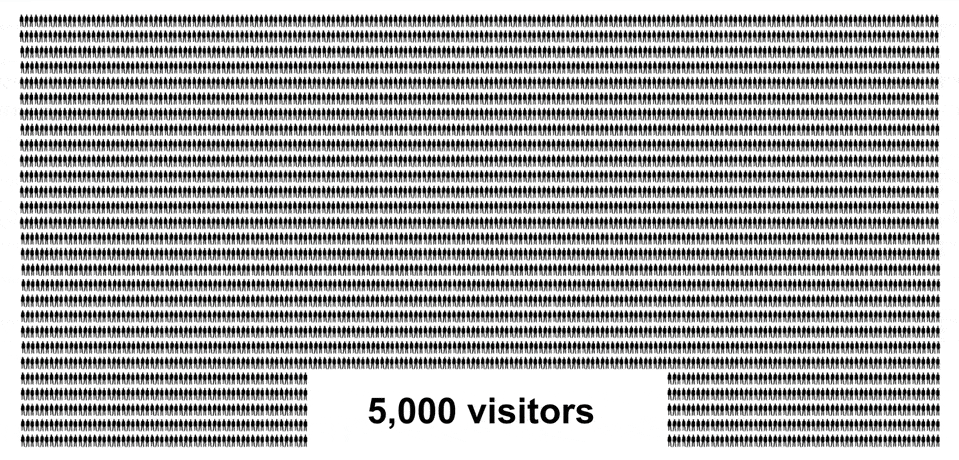
Now, since you’re a best practice sort of marketer, you ran an A/B test on all of that traffic.
Unfortunately, what you don’t realize is that you are only actually testing 25% of your traffic. The other 75% doesn’t have any real chance of converting, remember?
As a result, you think you’re testing this:
When you’re really testing this:
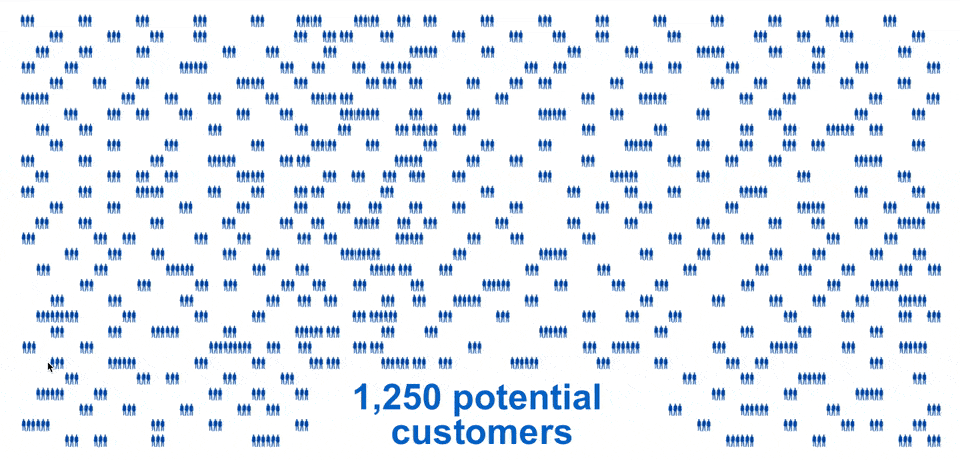
No big deal, though, right?
You run your test and you get 100 conversions in your control (the A variation in your A/B test) and 120 conversions from your variant (B variant).
In terms of your interested traffic, that means you just improved your conversion rate by 20%. Boom!
At $5 per click, you just cut your cost-per-conversion from $31.25 to $26.04. Your results are statistically significant, it’s time for a happy dance, right?
But wait a minute…you aren’t just paying for those 1,250 relevant clicks.
You’re paying for 5,000 clicks.
That means your test population actually looks like this:
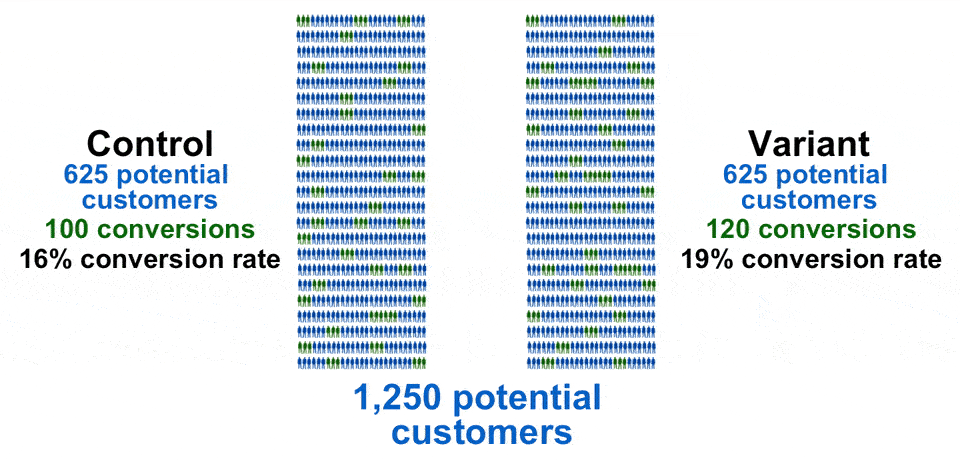
And your results look like this:
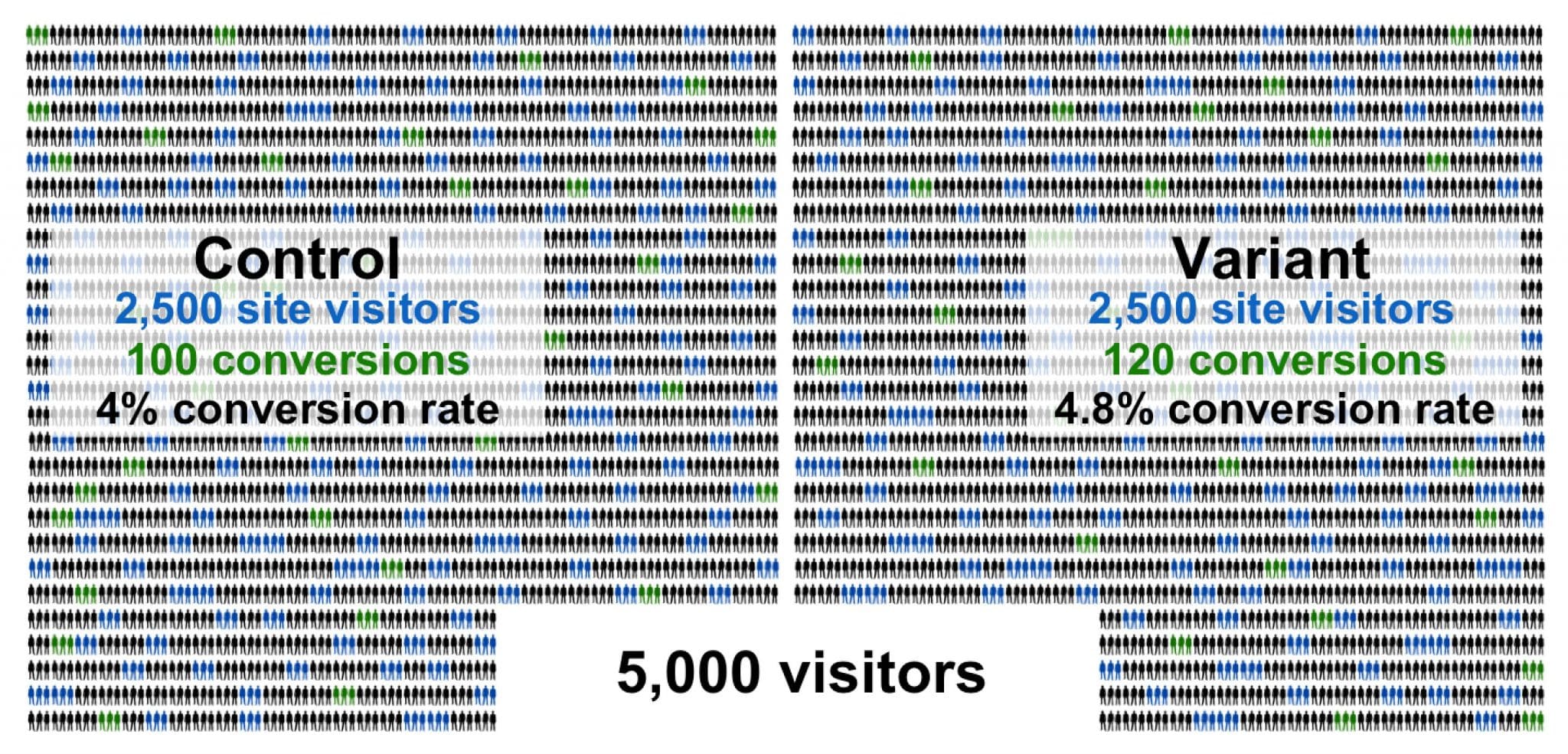
Yikes! What happened?
Unfortunately, although your conversion rates for relevant traffic were 16% and 20%, all of that “wrong” traffic you were paying for diluted your conversion rate down to 4% and 4.8%.
True, that’s still a 20% improvement in conversion rate, but now it doesn’t look nearly as exciting.
Now, here’s the real problem—your shiny, new, optimized cost-per-conversion is $104.17.
Remember, your cost-per-conversion was $31.25 back when we were only considering your relevant traffic.
Since you are wasting 75% of your advertising budget on the wrong search terms, your “optimized” cost-per-conversion is over 3x what you could be paying if you were only paying for the right traffic.
Did your A/B test help reduce your cost-per-conversion? Yes, but no amount of testing will fix a traffic problem.
Fixing Your Traffic
So, what happens to your cost-per-conversion when you stop wasting your budget on the wrong traffic?
Let me show you:
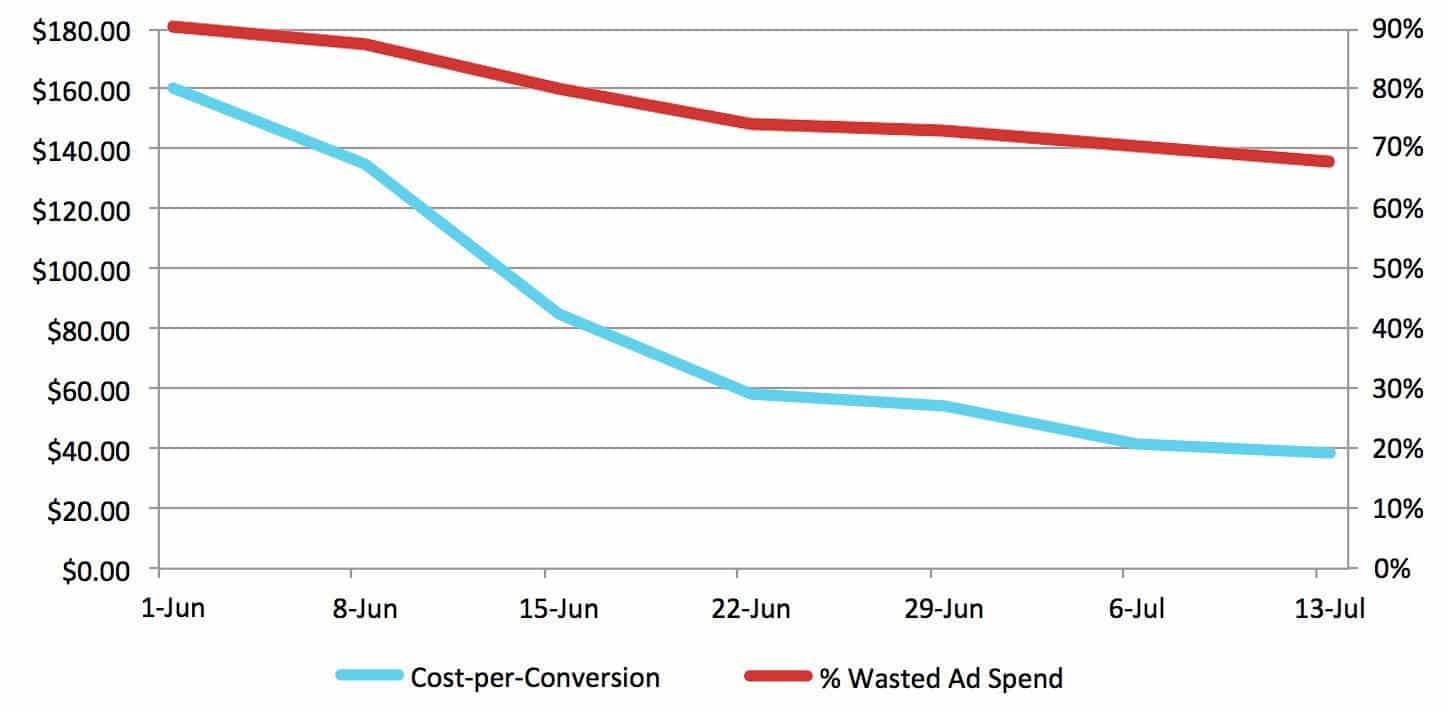
As it turns out, decreasing wasted ad spend lowers your cost-per-conversion…exponentially.
In the case of this client, simply decreasing their wasted ad spend from 91% to 68% dropped their cost-per-conversion from $160.38 to $38.58.
And it happened in a matter of weeks.
At Disruptive Advertising, we’ve produced results like this for our clients countless times. While we’re big believers in the power of CRO, we also know that dialing in your PPC traffic is one of the best and fastest ways to get you to your marketing goals.
After all, every successful test starts with the right traffic.
Testing vs Traffic
So, PPC vs CRO…which is more important?
To be honest, the answer is, “it depends.” If your PPC budget is driving the right traffic to your site, a great testing strategy can help you squeeze every last conversion out of your clicks.
On the other hand, if—like most business—you’ve got the wrong traffic and limited resources, you’re going to get better results from focusing on your traffic.
Here are 3 things to start with:
- Define your audience. Do you really know who your “right” audience is? What are their key pain points? Have you taken the time to create buyer personas? Are your ads a good fit for what your potential customers are looking for?
- Review your targeting. Does your targeting match your buyer personas? Are you targeting the right demographics? If you’re using paid search, are you bidding on keywords that your audience actually uses when they are looking to buy?
- Use your analytics. Do your clicks lead to conversions? Are your ads being seen by the right demographic? If you’re using paid search, how much are you spending on search terms or keywords without a history of conversions?
Once your PPC spend is driving the right traffic, that will free you up to focus on testing.
And, since you’ll be testing the right traffic, your results will be truly meaningful to your business.
Conclusion
After combining CRO and PPC to produce great results for years, I’m definitely a big fan of both. However, CRO works best when you are testing the right traffic.
So, if you need to improve your marketing performance and can only pick one area to focus on, start by optimizing your PPC campaigns.
By the way, if you’d like me to take a look at your PPC or CRO strategy and give you my thoughts, let me know here or in the comments. I’d love to help!
PPC vs CRO—how do you feel about this analysis? Does it make sense to you? Which do you prefer?


